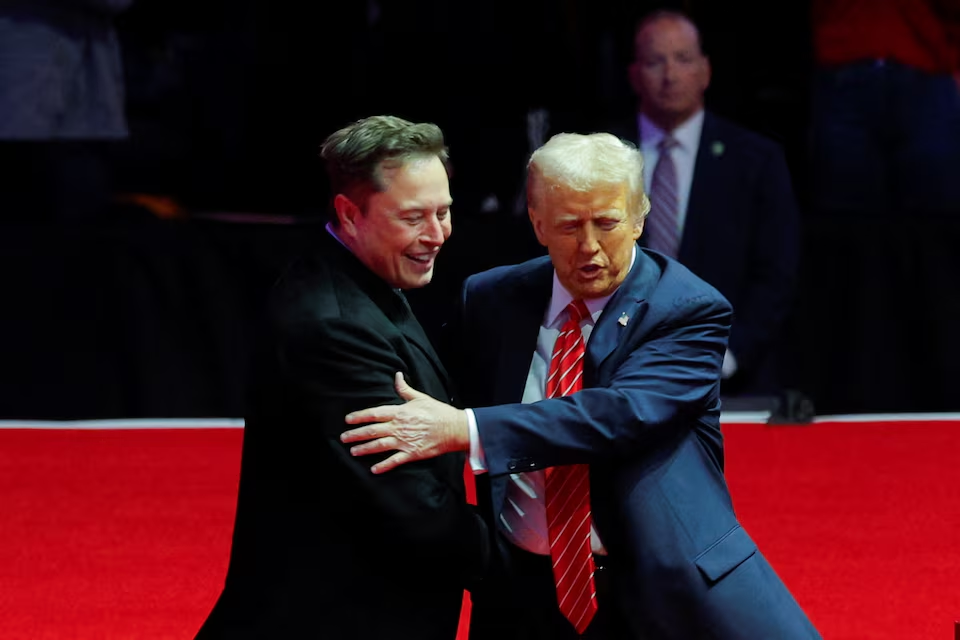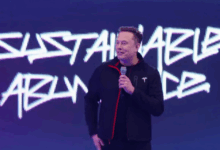Elon Musk Exits Washington. Here’s What Broke the Alliance With Trump.

The tumultuous experiment of using political power in Washington by Musk seems to be coming to an end. Once hailed as the innovation czar, self-proclaimed “efficiency tsar” of President Trump, Musk has been shrinking away from federal government work with growing frustration on account of entrenched bureaucracy, unmet promises, and increasing disparity between his desires and the realities of Capitol Hill.
The billionaire who had gone from being a central figure in the early months of President Trump’s second term under his Department of Government Efficiency (DOGE) initiative to actually taking a step back was confirmed by Musk on X on Wednesday. Gratitude was expressed to Trump in the same post “for the opportunity to reduce wasteful spending;” however, critics have suggested that the tone was more of a farewell than one of celebration. Elon Musk exits Washington not with a bang, but with a weary pivot back to his core businesses.
From Insider to Outsider
The presence of Musk in the capital indeed made the news on a near-daily basis. He had that direct link to the president, that influence over hiring and firing across agencies, and so forth, and he would often use his social media channels to accuse programs that he saw as wasteful. But insider sources claim now that behind that glueing public front, relations between Musk and Trump have progressively cooled.
The heat began to rise when Musk put off making good on his $100 million pledge to Trump-aligned political groups, a move that senior GOP operatives found extremely suspicious. Then Musks’s growing frustration with a recent domestic spending bill, one put forward by Republicans but which he said was contrary to the deficit-cutting undertakings in his own DOGE initiative, added more fuel to the discord.
“I probably did spend too much time on politics,” Musk admitted this week in a rare interview, signaling that his energies will now be redirected back to Tesla, SpaceX, and xAI. The sentiment echoes what many now see as a defining headline of 2025: Elon Musk exits Washington.
Policy Clashes and AI Friction
It is believed that one of the hard-hitting moments was the OpenAI-UAE AI deal. Musk supposedly approached White House officials to intervene so that his own AI company, xAI, would become part of the deal, and he was turned down. This hurt not only because of Musk’s early association with OpenAI but also due to his emerging rivalry with CEO Sam Altman.
Musk also expressed his dissatisfaction with the policies of the Trump administration in that they favor politically connected contenders and are otherwise non-transparent. The notion that Musk is losing ground in shaping national tech policy seems to have sped his retreat from government interaction.
A Shift in the Power Dynamic
While Musk’s DOGE team still maintains footprints within agencies such as the General Services Administration and the Social Security Administration, sources reveal that the White House is now deliberately trying to distance itself. At Doha, even at a donor event, Mr. Musk was in line waiting to greet President Trump-a symbolic overture to what earlier might have been a seat in the front row.
From that point onward, White House aides no longer considered Musk indispensable. Officials cited the fact that Trump refused to publicly defend him when questioned about budgetary criticisms as further confirmation that the alliance had cooled. The observers noted an unmistakable shift: Elon Musk leaves Washington as his sterling influence diminishes and political friction rises.
“The Musk era in Washington may not be over entirely, but it’s no longer center stage,” said a senior administration official, speaking on condition of anonymity.
Reclaiming the Tech Spotlight
Meanwhile, Musk is publicly recommitting to his companies in California and Texas. Musk posted a video from the SpaceX control room wearing an “Occupy Mars” T-shirt, saying that his focus is again on interplanetary travel after a near failure in the recent Starship test flight.
“Back to spending 24/7 at work,” he wrote. “I must be super focused on X, xAI, and Tesla.”
Is this a permanent change or just a strategic pause? At least for now, the political footprint of Musk is shrinking, and his business empire is again taking precedence. The retreat of Musk from all things political-delineated by his exit from the federal spotlight-is more of a recalibration than a surrender.
A Relationship Redefined
This retreat by Musk is a strange development in one of the highest-profile alliances of the Trump era. Once built on disruptions and shared disdain for red tape, their relationship is becoming strained on a couple of fronts, varying expectations, and visions.
For his part, Trump has made no public criticisms against Musk-like a silence that still says plenty. Some within the administration may quietly breathe a sigh of relief with Musk’s exit from D.C. come the re-election bid; others view it as a loss, seeing his astral presence carrying momentum on policy.
In Washington, like in Silicon Valley, even alliances forged through innovation have an expiration date.
Follow us on WhatsApp, Telegram, Twitter, and Facebook, or subscribe to our weekly newsletter to ensure you don’t miss out on any future updates. Send tips to editorial@techtrendsmedia.co.ke


